Freedom to Achieve
Pathways and Practices for Economic Advancement After Incarceration
Get a copy of the report sent to your inbox.
Why People With Records are Struggling to Get Hired
Hiring people who have been incarcerated and have a record has never been a priority in the United States. Finding any job is difficult for people who were once incarcerated, but finding a sustainable, family-supporting job is nearly impossible.
Reentry is a challenging personal experience, complicated by structural barriers and systemic inequities.
On average, a state has 56 occupational and 43 business licensing laws that prohibit hiring people with records.
Racial inequities in our workforce and criminal justice systems only heighten these barriers for formerly incarcerated Black and Latinx workers and often trap them into a cycle where the best-case scenario is underemployment, and the worst-case scenario is returning to prison.
Unemployment Rates for the General Population and the Formerly Incarcerated, by Race and Gender, 2018
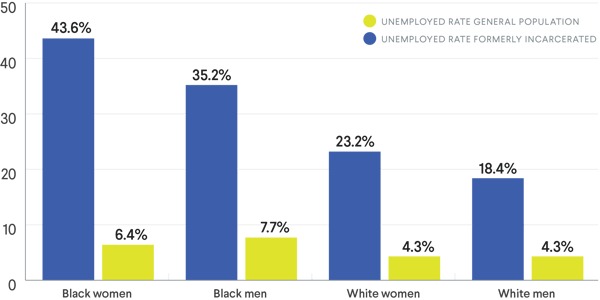
The Likelihood of a Callback or Job Offer, by Race and Interaction Type
Before the COVID-19 pandemic, momentum was building for fair chance hiring—the practice of assessing a jobseeker’s criminal record only after determining the person is qualified for the job, and a growing number of private employers were willing to hire people with criminal records. Now, with roughly 10 million people looking for work, employers can choose from a large pool of qualified candidates, making it less compelling to hire someone who has been previously incarcerated.
Our Mission
Our Mission
Equitable Economic Advancement for People With Records

Economic Advancement
Ensure the 70 million Americans with a criminal record, who are disproportionately Black, Latinx, and people from low-income backgrounds, are positioned for employment with opportunities for advancement and earning a living wage.

Equity
Guide reforms to remove barriers shaped by the nation’s history of systemic racial inequities, which prevent employers from adopting fair chance hiring practices.
%20(1).jpg)
Faces of Incarceration
U.S. Prison Population Statistics
The “face” of the U.S. prison population has been represented in popular culture as a Black male; however, this is a diverse population in terms of race and ethnicity, gender, age, educational attainment, and work experience.
Click below to view a breakdown of demographics.
-
Race and Ethnicity
In 2018, Black Americans represented 33 percent of the sentenced prison population versus 12 percent of the overall population. White Americans accounted for 30 percent of the sentenced prison population versus 63 percent of the overall population. Latinx people or Hispanics accounted for 23 percent of the sentenced prison population versus 16 percent of the overall population.
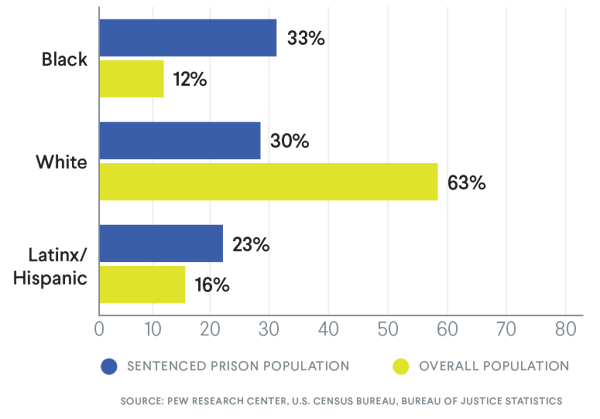
-
Gender
Women's rates of incarceration were noted as 10.4 percent, slightly higher than previous years.
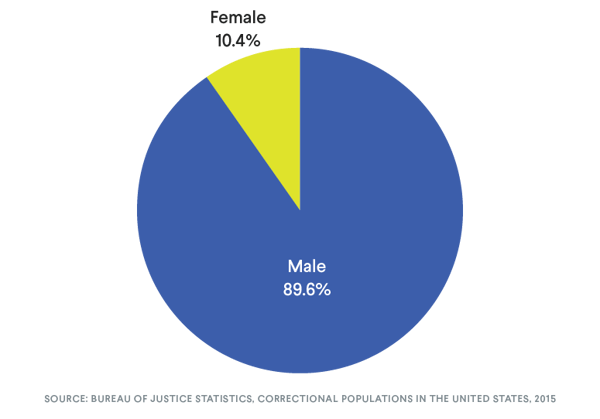
-
Age
Young adults have much higher recidivism rates than older people.
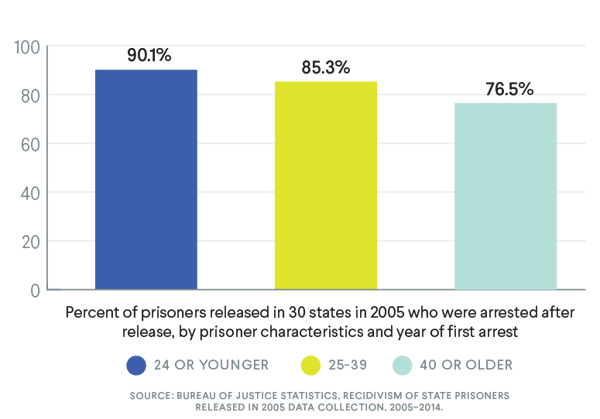
-
Educational Attainment
A 2016 survey of educational attainment among incarcerated adults found that 30 percent of the prison population had attained less than a high school diploma, compared to 14 percent of the general U.S. population.
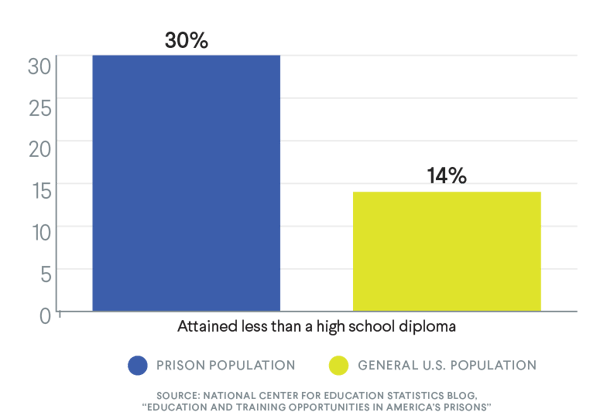
Building Blocks of Success for Lifetime Careers
People with records have specific needs that employers must meet in order to place them on a path to economic advancement. To maximize equity and economic mobility success for people with records, we must take a strategic, tiered approach that will enable them to move from transitional jobs to springboard and lifetime jobs.
Transitional Jobs
The strongest transitional jobs programs for people reentering the community combine in-demand skills training with case management to help individuals quickly stabilize and connect to full-time work. These jobs typically are low paying and offer few options for growth and higher wages.

Springboard Jobs
The best springboard jobs lead to career advancement for people with criminal records through promotion to jobs that offer greater responsibility and pay within an industry. Apprenticeships and social enterprise models are effective models that lead from springboard to lifetime jobs.

Lifetime Jobs
Lifetime jobs are careers that offer living wages and long-term stability but may not lead to higher-level positions. Investing in prison education and training programs like Apprenticeship Readiness Programs set returning citizens up for economic mobility.

Promising Practices
People with records have specific needs that employers must meet in order to place them on a path to economic advancement. To maximize equity and economic mobility success for people with records, we must take a strategic approach to change the local workforce ecosystem that will enable individuals to move from transitional jobs to springboard and lifetime jobs.
Equity Matters
Moving from incarceration to careers is a daunting challenge for individuals and mobility systems. We need to create pathways for individuals who have been incarcerated and redesign the systems that should be (but are not yet) able to set the trajectory for economic advancement for people reentering the community. What will it take to develop a connected, scalable workforce development ecosystem that disrupts current inequities?
- Ensure that people who have experienced incarceration are core stakeholders in all aspects of workforce redesign efforts.
- Establish cross-sector collaboration to ensure policies, resources, and best practices for talent development align across the systems responsible for providing education and training for people with records.
- Integrate evidence-based models into a transparent, navigable, and equitable workforce development ecosystem that positions people who have been incarcerated for economic advancement.
- Ensure inclusive and equitable practices promote access, retention, and advancement in education pathways and employment.
- Increase investments in pathways and practices that promote economic advancement for returning citizens and people with records.
Work With Us
Become a Fair Chance Employer and Expand Economic Mobility for People with Records
JFF’s Center for Justice and Economic Advancement is excited to partner with employers, education and training providers, and those who have personal experience navigating the justice system to advance efforts to provide critical services to people with records and expand access to education and employment opportunities.
In addition to preparing people with records for sustainable employment, we must join forces to advance policy agendas that support systemic changes that set up people who are incarcerated and who have records for economic success. Together, we can make a difference by mobilizing employers, providing technical assistance and education, conducting research to identify transformative solutions, and raising awareness by changing the social narrative of this complex issue.

